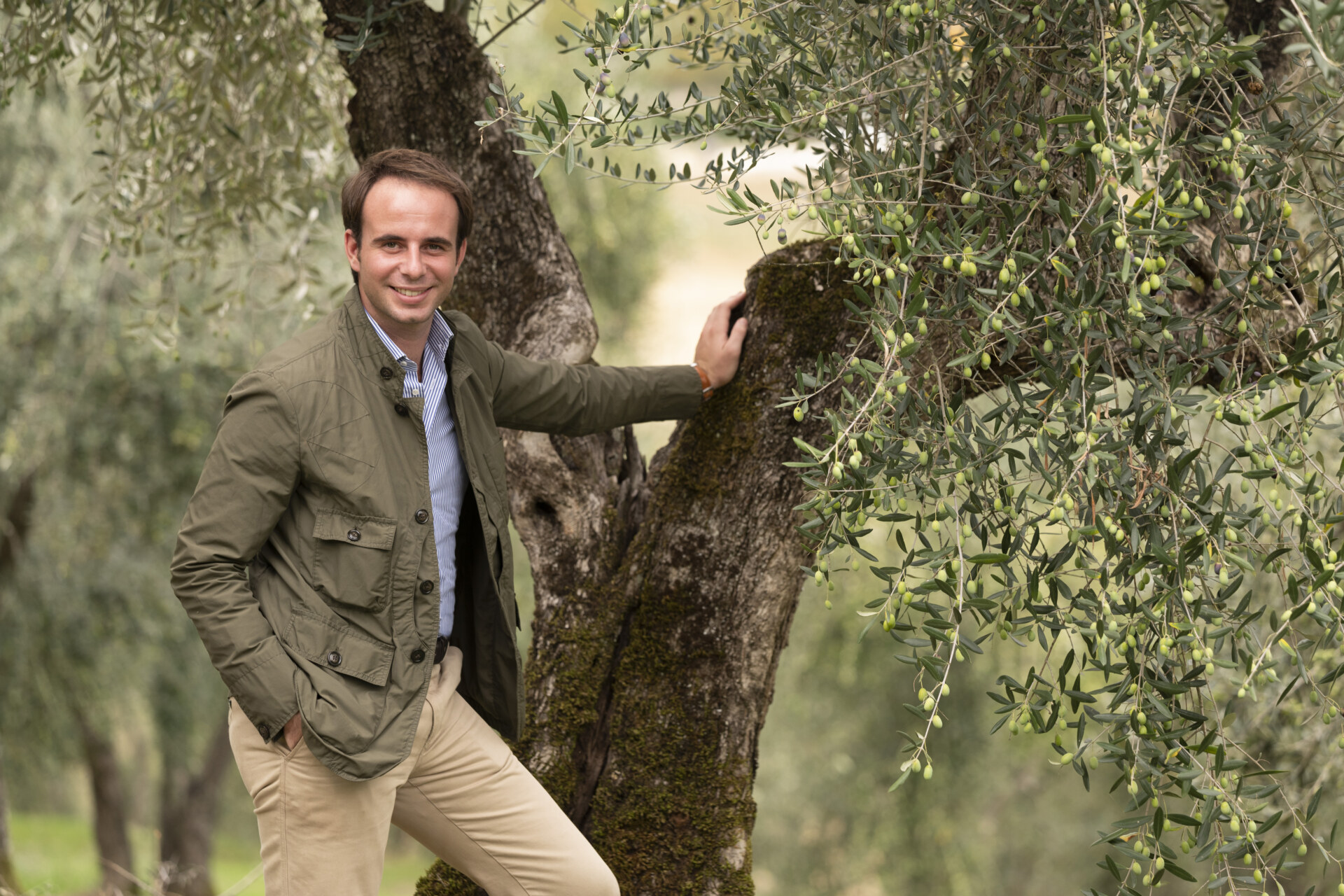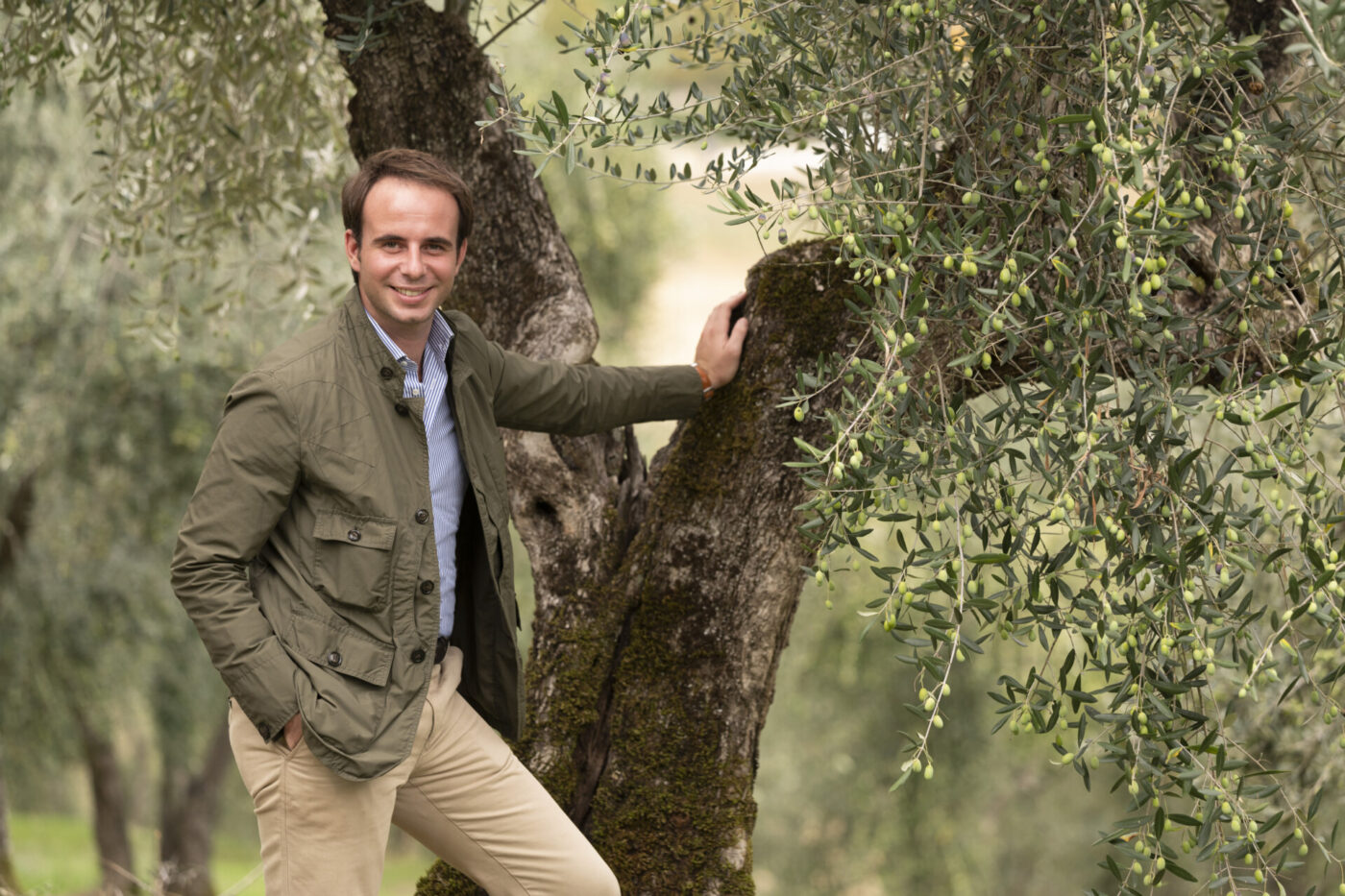Tell us briefly about your background and your current work:
I’m the youngest representative of the 30th generation of the Frescobaldi family, joining the company in 2018 as Brand Manager of Laudemio Frescobaldi. I grew up in international environments and have always cultivated a desire to work in the family business and contribute to its development. My passion for agriculture was born on the family farms where I grew up and worked during the summers before my educational experiences abroad.
In 2007, as soon as I was 18, I moved to London to study Business Administration at Regents University London. After my three-year university degree, I conducted work experience in various companies both in London and in the United States in Napa Valley. Finally, in 2012, I earned a Master’s degree in Business Administration from Grande Ecole ESCP Europe, studying at the Turin and Berlin campuses. After finishing my studies, I worked in Milan for six years, initially in PWC Advisory dealing with extraordinary finance transactions, and later in a private investment fund.
In 2017, I drafted an industrial plan dedicated to the production and commercial development of Laudemio Frescobaldi that calls for significant investments in new olive groves and new facilities to facilitate the highest possible quality. On the commercial side, the plan includes the creation of a dedicated team to establish Frescobaldi as the world’s reference for extra virgin olive oil in the fine food sector. In 2018, I started implementing the plan on the Frescobaldi project as Brand Manager. In 2023, I launched the pasta brand TIRRENA, made from ancient grains grown in Tuscany on Frescobaldi estates, which I now manage together with Laudemio Frescobaldi, and which increases the Frescobaldi Group’s distribution in the fine food sector.
Why did you choose to stay in Italy?
After studying and working abroad, I wanted to return to Italy. I think it is important to travel and learn about the world, but also to appreciate one’s homeland. Since I was very young, I’ve always wanted to work in my family business–so that was the main reason I came back. After that, the quality of life here truly is indisputable. Besides the top-tier food, every city is beautiful, and even more beautiful cities are always just a car, plane, boat, or train ride away. Plus, we have amazing mountains and beautiful seas that are always within easy reach. This diversity of beauty, landscapes, and territories also gives uniqueness and quality to our gastronomic products.
What are your predictions for the future of the food industry in Italy?
The main trend is “premiumization.” In each category of the food industry, consumers are looking for more agricultural and/or artisanal products, which ultimately means more “premium” or “gourmet.” Over the past century, the food industry has focused on mass production in order to provide food to everyone, everywhere. Today, consumers don’t just want an “olive oil” or a “pasta,” they want a fine product; they want to know where and how it is produced–in a healthy and authentic way, true to the land of origin. And, why not, they also want beautiful packaging. Beauty plays a role: a good product must be beautiful, and beautiful products must be good.
What are the biggest obstacles and satisfactions you face working in this country?
The main obstacle is in getting our stakeholders to understand the uniqueness behind our products, which is terroir. The concept of terroir is now established in the wine world, but still not assimilated into the food world. This is because the food industry is mostly divided between farmers and processors, while we are a farm that also processes the finished product. Behind a great wine, there is always a great territory. If you think of pasta, people think of the pasta factory, but not of the grain nor the territory where it was grown. What we are trying to do is to apply the same philosophy of wine to extra virgin olive oil and pasta. It is very difficult to change people’s minds; they have to get there on their own.
Precisely because we are getting there, this gives us great satisfaction, and the results of both Laudemio Frescobaldi and Tirrena are proof.

